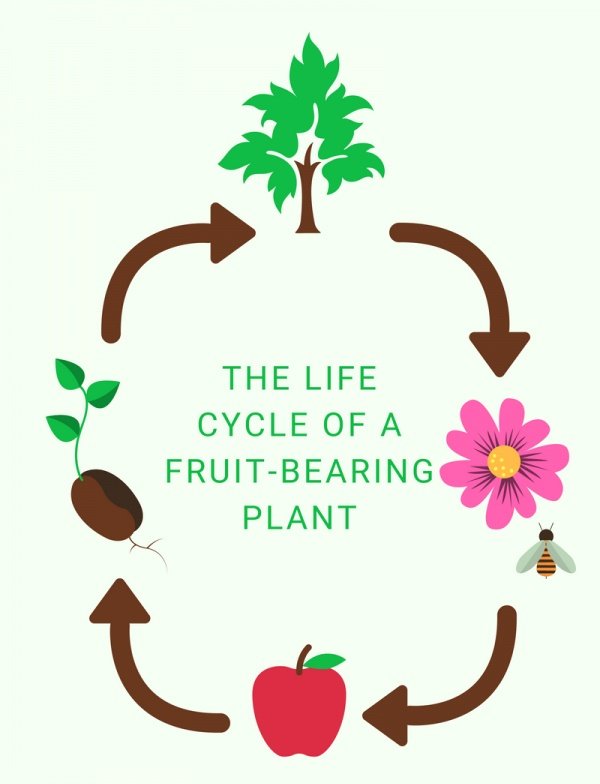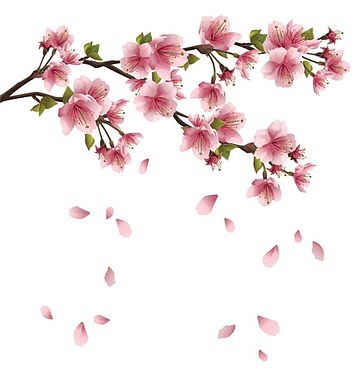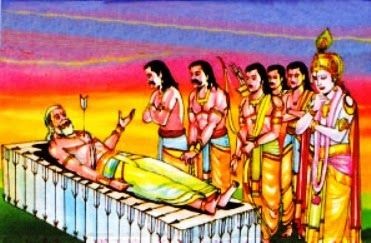Any Intelligent reader of scientific temperament,
If He were to Read these 3 wid some Understanding,
can easily Perceive dat a healthy creative revolt on Mantras gave birth to d Brāhmaṇas,
Đ Ritualistic portion,
which in its own maturity brought forth d Glorious #Upaniṣhads
If He were to Read these 3 wid some Understanding,
can easily Perceive dat a healthy creative revolt on Mantras gave birth to d Brāhmaṇas,
Đ Ritualistic portion,
which in its own maturity brought forth d Glorious #Upaniṣhads

Đ relative positions of these 3 sections on the scales of Human Growth can be easily compared with the
Birth & Growth of a Flower
& its Fulfilment in its Fruit.
Đ Peeping buds Represent the Mantras;
Đ Blushing petals in all their
Glory of Colour,
Fragrance
&
Joy,

Birth & Growth of a Flower
& its Fulfilment in its Fruit.
Đ Peeping buds Represent the Mantras;
Đ Blushing petals in all their
Glory of Colour,
Fragrance
&
Joy,


dancing in the passing breeze
&
continuously courted by the murmuring bees,
represent the Brāhmaṇa portion where desire laden courtiers enter to invoke the Paramātmās to gain more & more for their Prosperous cells.
In their Own Maturity
Đ Colours fade away,
Đ Petals shrink &
&
continuously courted by the murmuring bees,
represent the Brāhmaṇa portion where desire laden courtiers enter to invoke the Paramātmās to gain more & more for their Prosperous cells.
In their Own Maturity
Đ Colours fade away,
Đ Petals shrink &

they ultimately fall down dancing in the air in the Ecstasy of their Sense of Fulfilment.
They are Sure that where they Stood,
The Fruit shall come to Flourish.
Đ Fruit in its Unripe Stage during its Formation may be Compared with the āraṇyakas which constitute the Transitional
They are Sure that where they Stood,
The Fruit shall come to Flourish.
Đ Fruit in its Unripe Stage during its Formation may be Compared with the āraṇyakas which constitute the Transitional

period that must necessarily intervene between
Đ Extrovert Seeking
&
Đ Introvert Discovery.
When the Fruit is Mature & Ready to Fall,
Capable of giving Birth to many a mother plant which shall in their turn,
produce 100s of Flowers & each Flower in its turn
Đ Extrovert Seeking
&
Đ Introvert Discovery.
When the Fruit is Mature & Ready to Fall,
Capable of giving Birth to many a mother plant which shall in their turn,
produce 100s of Flowers & each Flower in its turn

may Produce Scores of Seeds, which Represents the extremely Creative,
Virulently Potent,
Uncompromisingly Dynamic Philosophy of Đ Upaniṣads.
Đ Ecstatic Song of Wonderment & Voiceless Inspiration remembered by Our Forefathers.
Virulently Potent,
Uncompromisingly Dynamic Philosophy of Đ Upaniṣads.
Đ Ecstatic Song of Wonderment & Voiceless Inspiration remembered by Our Forefathers.

These Memorised flakes of Sparkling Wisdom Treasured
&
handed down to Us is the Sacred Heritage of the Hindu Culture, Compiled
& Preserved today in the volumes called Đ Vedas.
The Theme of the Vedas,
therefore,
is Đ Infinite & Đ Eternal.
&
handed down to Us is the Sacred Heritage of the Hindu Culture, Compiled
& Preserved today in the volumes called Đ Vedas.
The Theme of the Vedas,
therefore,
is Đ Infinite & Đ Eternal.

It describes the Realm that lies beyond the World's that are known to Us,
Perceived & Experienced through the gross equipments of Our
Body,
Mind
&
Intellect.
ll ॐ तत् सत् ll🙏
Perceived & Experienced through the gross equipments of Our
Body,
Mind
&
Intellect.
ll ॐ तत् सत् ll🙏

• • •
Missing some Tweet in this thread? You can try to
force a refresh









